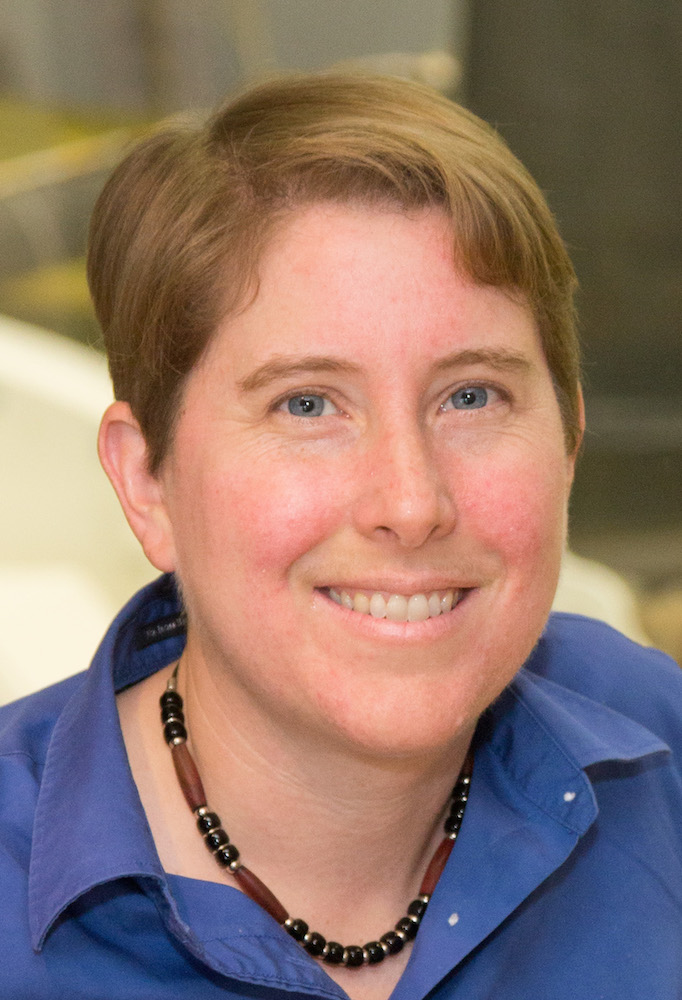|
Jane Rigby Goddard Space Flight Center 2018 John C. Lindsay Memorial Award Winner |
 |
"A Magnified Vision of How Galaxies Evolve"
THE JOHN C. LINDSAY MEMORIAL LECTURE
|
Jane Rigby Goddard Space Flight Center 2018 John C. Lindsay Memorial Award Winner |
 |
In hundreds of known cases, "gravitational lenses” deflect, distort, and magnify images of galaxies behind them. Lensing can magnify galaxies by factors of 10--100 times, transforming them from objects we can barely detect to bright objects we can study in detail. We have taken advantage of these natural telescopes to build Megasaura: The Magellan Evolution of Galaxies Spectroscopic and Ultraviolet Reference Atlas. Megasaura is an atlas of high signal-to-noise, medium spectral resolution (R~3000) spectra of 15 extremely bright gravitationally lensed galaxies at redshifts of 1.7 to 3.6. The Megasaura spectra reveal a wealth of spectral diagnostics: absorption lines from gas being blown out of the galaxy, emission lines from gas heated by newly-formed star, and photospheric absorption lines and P Cygni profiles from the massive stars that power the outflow. These will be key diagnostics for future telescopes (JWST and beyond), that Megasaura can study now. Indeed, Megasaura will be the definitive spectral atlas of its kind until the advent of 20–30m ground-based telescopes in the late 2020s, giving insight into the processes by which galaxies evolve over cosmic time.
About the Speaker
Dr. Jane Rigby is a civil servant Astrophysicist in the Observational Cosmology Lab at NASA GSFC. Her research focuses on the evolution of galaxies over cosmic time, in particular how stars form within galaxies, how the elements in the period table built up over time, and how supermassive black holes grow in the centers of galaxies. She is an author of 110 peer-reviewed scientific papers. Rigby serves as the Deputy Project Scientist for Operations for the James Webb Space Telescope. Rigby was a Spitzer Fellow and Carnegie Fellow at the Carnegie Observatories in Pasadena, Ca. She holds MS and PhD degrees in Astronomy from the University of Arizona, and a BS degree in Physics and a BS degree in Astronomy from Penn State. She has received R. H. Goddard Awards for Exceptional Achievement in Science and for Exceptional Achievement in Diversity and EEO, as well as several NASA team awards. Outside of work, Rigby enjoys spending time with her wife and their kindergartener, windsurfing, and activism.